The Great Barrier Reef is experiencing its worst summer on record: corals experiencing extreme bleaching alongside floods, cyclones and outbreaks of deadly starfish, scientists warn
- A ‘heartbreaking’ update reveals three-quarters of the reef has been bleached
- Scientists say they fear time is running out to protect the Great Barrier Reef
Scientists fear time is running out to protect the Great Barrier Reef, which is enduring one of the most extensive coral bleaching events.
The full extent of the impact is still unknown, despite a “heartbreaking” update on Wednesday showing that almost three-quarters of the reef has been affected.
The reef has suffered its worst summer on record after being hit by two tropical cyclones and severe flooding plus an outbreak of coral-eating crown-of-thorns starfish.
This has resulted in one of the most widespread and severe mass coral bleaching events ever seen on the reef.
The 2023/24 Summer Update has been released by the Great Barrier Reef Marine Park Authority, the Australian Institute of Marine Science and the CSIRO.
Scientists fear time is running out to protect the Great Barrier Reef, which is enduring one of the most extensive coral bleaching events
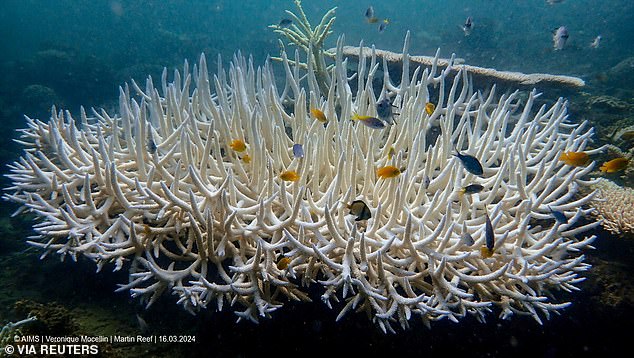
The reef has suffered its worst summer on record after being hit by two tropical cyclones and severe flooding plus an outbreak of coral-eating crown-of-thorns starfish
It provides insight into the fifth mass bleaching of the reef in eight years due to heat stress caused by climate change.
Professor Terry Hughes from James Cook University said the narrowing gap between bleaching events was a major concern, casting doubt on any subsequent full recovery.
“We have already seen back-to-back bleaching events in two consecutive years in 2016-17 and the last three events, including this one, were only two years apart,” he told AAP.
“That’s not nearly enough for a full recovery or anything like that.”
Selina Ward from the University of Queensland said the clock was ticking to take action on climate change and protect the reef.
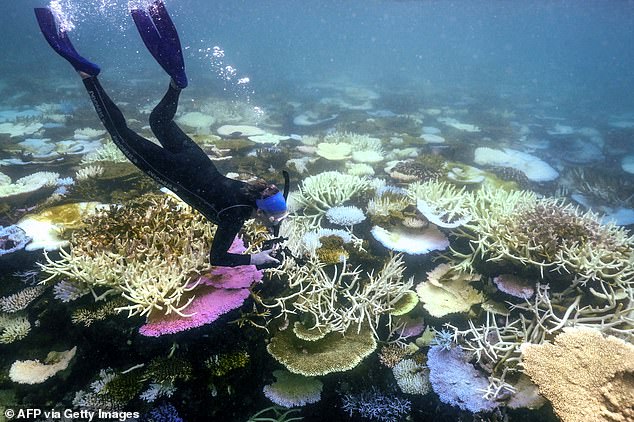
The full extent of the impact is still unknown, despite a ‘heartbreaking’ update on Wednesday showing that almost three-quarters of the reef has been affected
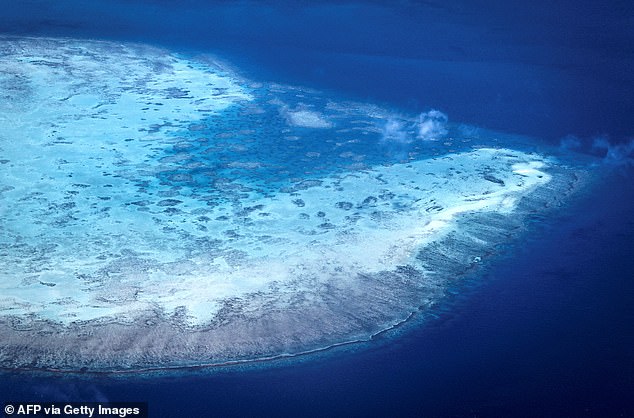
This aerial photo, taken on April 4, 2024, shows a coral atoll near Lizard Island on the Great Barrier Reef, 167 miles north of the city of Cairns.
“We have less time… to make the changes,” Dr. Ward to AAP.
“We really need to get serious… we’re definitely running out of time.”
According to the update, aerial surveys showed that 73 percent of the 1,080 reefs monitored had been bleached during the latest event.
Bleaching was ‘very high’ or ‘extreme’ in 39 percent of reefs, with the highest levels in the southern region and parts of the remaining central and northern areas.
“It’s a very serious and unfortunate bleaching event (after) some of the longest periods of hot water we’ve ever had on the Great Barrier Reef,” Dr Ward said.
“It’s really heartbreaking… it’s widespread and there are really high levels of extreme bleaching, more than normal.”
Extreme bleaching is recorded when more than 90 percent of a reef’s coral cover is affected.
A very high level is considered if more than 60 percent has been bleached.
The severity of a bleaching event is ranked on a scale from category one to five.
But the latest event will not be assessed until the full extent of this summer’s record water temperatures is known, and scientists will monitor the impact over the next twelve months.
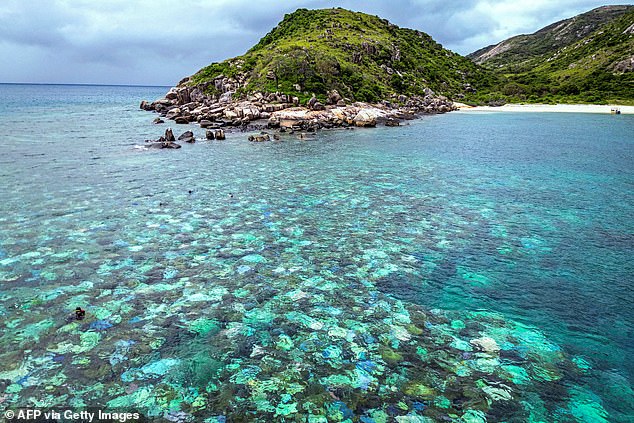
Extreme bleaching is recorded when more than 90 percent of a reef’s coral cover is affected. A very high content is considered if more than 60 percent has been bleached
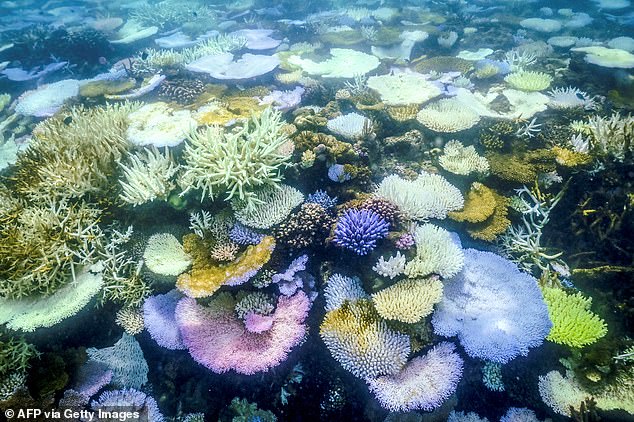
Bleaching is not always fatal, but corals are likely to die if temperatures remain higher than normal for too long
It comes after a fourth global mass coral bleaching event was declared this week, affecting 53 countries.
Bleaching is not always fatal, but corals are likely to die if temperatures remain higher than normal for too long.
“Some corals will regain their color in the coming months, but not all will survive given the severity of the bleaching this year,” Professor Hughes said.
WWF Australia has called on the Labor government to commit to a federal emissions reduction target of at least 90 percent below 2005 levels by 2035 and to phase out fossil fuels.
“The Great Barrier Reef has become one of the most bleached reef systems in the world,” a spokesperson said.
‘The Caribbean has lost 80 percent of its coral cover – is that the future we want for our national treasure?’
